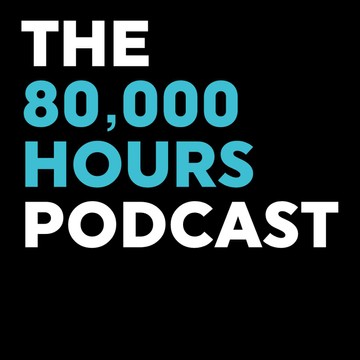
Alexander Berger
Co-CEO of Open Philanthropy, leading its global health and wellbeing work. Previously a researcher at GiveWell.
Top 5 podcasts with Alexander Berger
Ranked by the Snipd community

36 snips
Sep 17, 2024 • 1h 19min
Metascience 101 - EP2: “Is Science Slowing Down?”
Join economist Matt Clancy, Stripe co-founder Patrick Collison, and OpenPhil CEO Alexander Berger as they explore whether scientific progress is really slowing down. They discuss the challenges in measuring scientific breakthroughs, revealing a paradox of increasing funding yet declining impact. The conversation dives into how historical evidence, evolving practices, and innovations like AI may influence future advancements. With insights on institutional reforms and diverse funding, they argue for a renewed focus on enhancing scientific productivity.

15 snips
Jul 12, 2021 • 2h 55min
#105 – Alexander Berger on improving global health and wellbeing in clear and direct ways
In this engaging discussion, Alexander Berger, Co-CEO of Open Philanthropy and former GiveWell researcher, dives deep into the effective altruism movement. He outlines how strategic philanthropy can address preventable diseases and the complexities of global health initiatives. Berger shares personal insights on his journey into effective altruism, the ethical dilemmas of kidney donation, and balancing immediate health needs with long-term plans. He advocates for an analytical approach to philanthropy that prioritizes meaningful impact in both human and animal wellbeing.

Oct 23, 2024 • 1h 10min
Metascience 101 - EP7: “Science and Political Legitimacy"
Dylan Matthews, a journalist at Vox, leads a compelling discussion with Alexander Berger, co-CEO of Open Philanthropy, and Tyler Cowen, a George Mason University professor. They dive into the critical relationship between scientific institutions and political legitimacy, exploring how funding affects public perception. The trio also tackles the complexities of research funding, the significant role of immigration in scientific progress, and the need for innovative funding strategies. Expect insights on how cultural narratives and geographic diversity shape the future of science.

Jun 14, 2024 • 3min
EA - [Linkpost] An update from Good Ventures by Alexander Berger
Alexander Berger, Publisher of the update from Good Ventures, shares insights about their grantmaking decisions, exiting certain sub-causes, and focus on diversifying funding sources. They discuss the impact on grant recommendations, the shift towards partnerships, and the decision not to expand into new causes.

Mar 27, 2024 • 4min
EA - Open Philanthropy: Our Progress in 2023 and Plans for 2024 by Alexander Berger
Alexander Berger discusses Open Philanthropy's significant growth in team size and annual giving, its impact on important developments in healthcare, and future initiatives in leadership and priorities.


